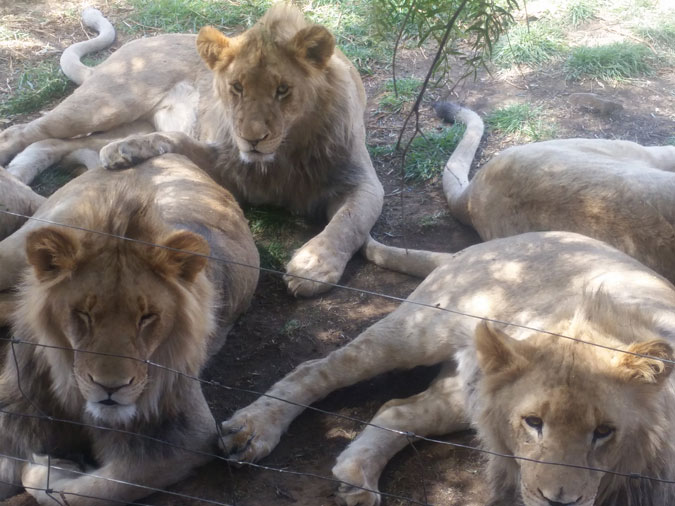South Africa is about to permit the export of lion bones to produce fake tiger wine but has given the public almost no time to object. The permit will allow an annual export of 800 skeletons to Asia. Written by: Don Pinnock
The Department of Environmental Affairs made the decision without public consultation but was forced to hold a stakeholder meeting to comply with CITES quota conditions. This was clearly planned as a once-off meeting, but delegates managed to get the department to open a two-week window for public comment, ending on Thursday [February 2].

The meeting, publically announced on 25 January leaves virtually no time for popular comment or intervention, so the proposal will probably go ahead. The DEA also plans to appoint a research group to monitor the export of lion bones.
“The decision is misguided and shameful,” said Audrey Delsink, Africa’s director of the Humane Society International. “Breeding captive lions is not only cruel and contrary to the global shift against captive wildlife, but is a potential threat to wild lions.”
According to Pippa Hankinson, the producer of the film Blood Lions, the quota appears to lack the requisite scientific basis and was arrived at without consideration of proper welfare or conservation protocols. There was no formal document to support how the quota of 800 skeletons was arrived at or how it would be enforced.
“South Africa [is showing] complete disregard for the overwhelming response by key global conservation leaders calling for the termination of captive lion breeding. In addition, this shocking industry is already adversely affecting Brand South Africa.”
The move is tacit support for the canned lion industry presently hurting from a US ban on the importation of lion trophies from South Africa where captive-bred lions are something of a black hole.
The government’s 2015 Biodiversity Management Plan mentions captive-bred only in passing, saying: “there is intense controversy over the merits and ethics of the captive breeding and subsequent release for hunting of captive-bred lions, although it remains legal to do so.” A CITES report notes that trade is fine, “if the relevant authorities are satisfied that certain conditions are met, above all that trade will not be detrimental to the survival of the species in the wild.”
In dealing merely with the impact of captive-bred lions on wild breeding stock, these reports ignore ethical and welfare issues and relegate lions to merely domestic farming stock. The permitting of the export of 800 lion carcases simply underlines this perspective.
Also read: Lions, bones and bullets
To comment on this story: Login (or sign up) to our app here - it's a troll-free safe place 🙂.![]()






